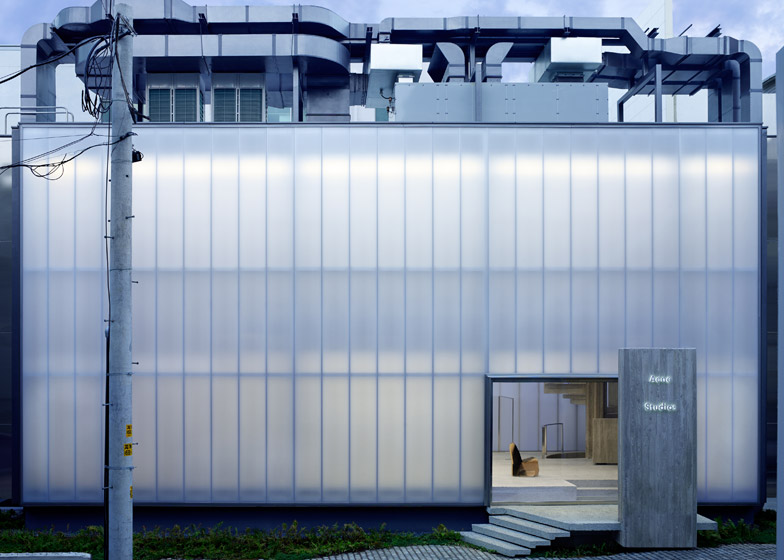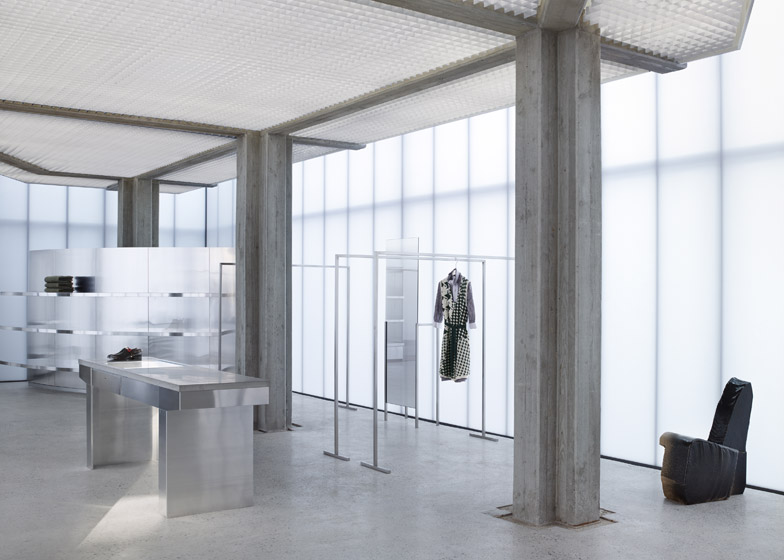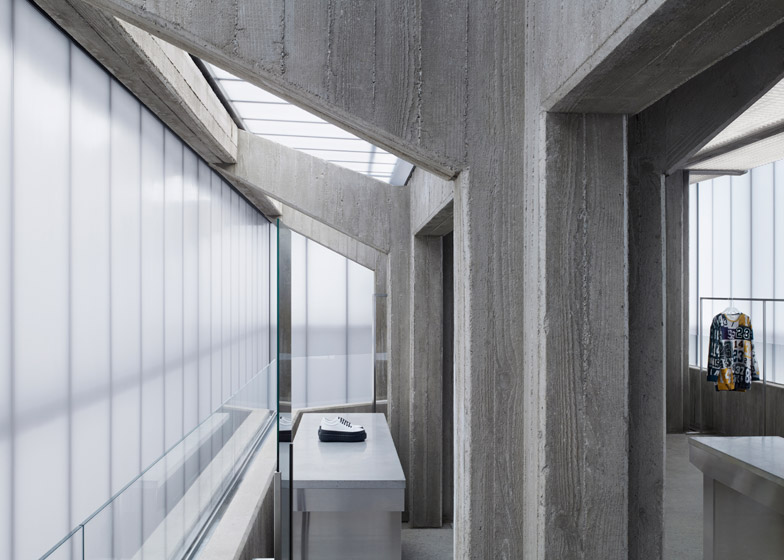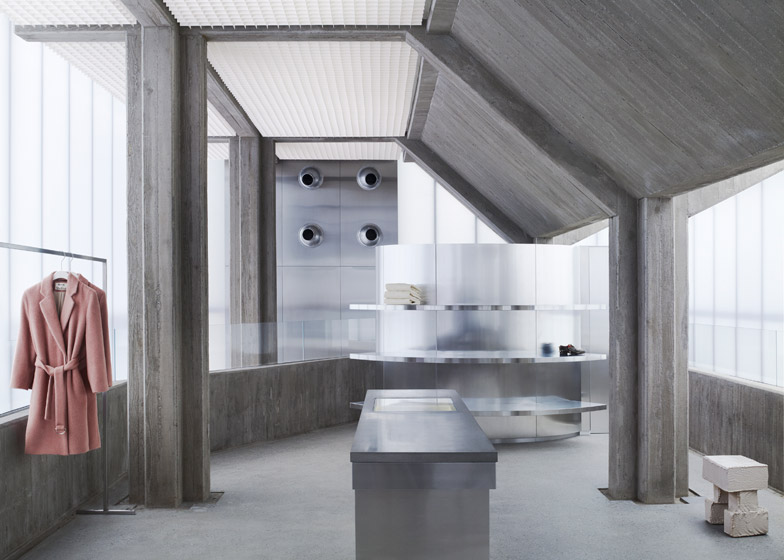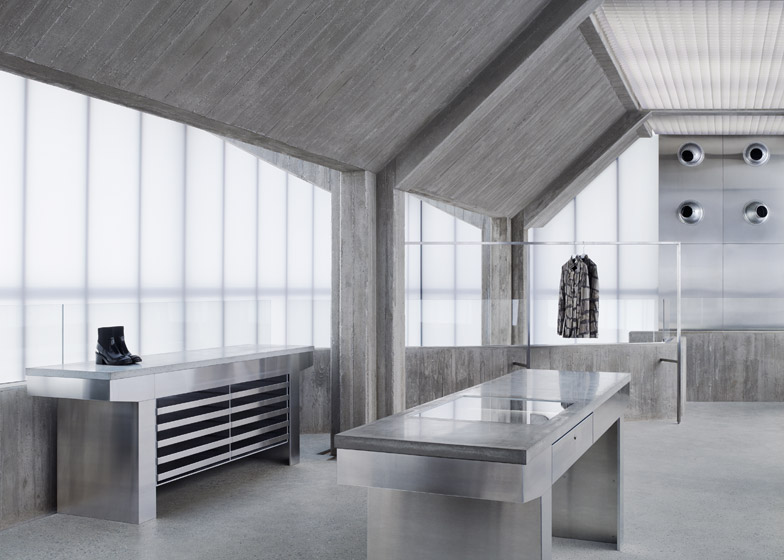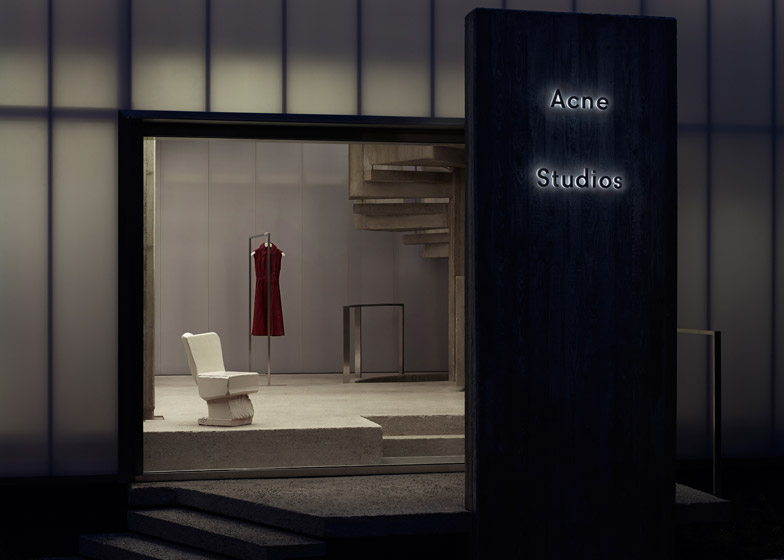A translucent lightbox hides the concrete interior of Swedish fashion brand Acne Studios' first flagship store in Seoul, designed by London architect Sophie Hicks (+ slideshow).
Located in the affluent district of Gangnam, the 230-square-metre store is the third in the country for the Swedish brand.
Hicks, of S H Architects, drew upon Acne's aversion to typical Swedish culture as a point of inspiration for the design.
"Swedish culture prizes modesty and discretion," said Hicks. "By contrast, Acne Studios' designs are forceful and exude attitude."
From street level the store appears to be a simple and "restrained" structure made from double-layered sheets of polycarbonate, surrounded by vegetation typical of Swedish archipelagos.
"As soon as you enter, you will realise that while it may only have been a box, it was a box concealing a heavy, brooding, concrete monster," Hicks said.
Set over two levels, the rectangular structure is completely separate from its translucent shell, and held up by four pairs of concrete columns – one of which supports a floating spiral-shaped staircase.
"Once upstairs, you will realise that there is something else about this building that is a little bit strange," said Hicks. "As you look down and about, you will notice that the rough, lumpen, concrete structure is entirely separate from the translucent walls that enclose it; that it sits inside its elegant box as if in a display case."
Each concrete surface has been imprinted with the pattern of rough timber often used to build boardwalks in the Stockholm archipelago.
An intentional lack of decoration allows focus to remain on the collection and surrounding space, and garments are subtly displayed against freestanding reflective walls and on thin metal rails.
Furniture and storage within the store includes chairs by British design Max Lamb and drawers designed by the studio themselves. In the fitting rooms, mirrors have been made from screen printed glass sheets
Clothing is hung from thin rails, while accessories are presented on metal shelves and tables.
Throughout the day, natural light is diffused through the building's walls. When dark outside, fluorescent bulbs that are hidden behind a metal grid illuminate the space.
Pipes and ducts from the air conditioning unit have been strategically piled up on the roof in a streamlined fashion as to not "disturb the atmosphere" of the store.
The Gangnam district has become a popular destination for luxury fashion brands to open their Korean flagship stores. Last year, System Lab designed a concrete-encased store with small circular windows for British designer Paul Smith in the area.
Photography is by Annabel Elston.

